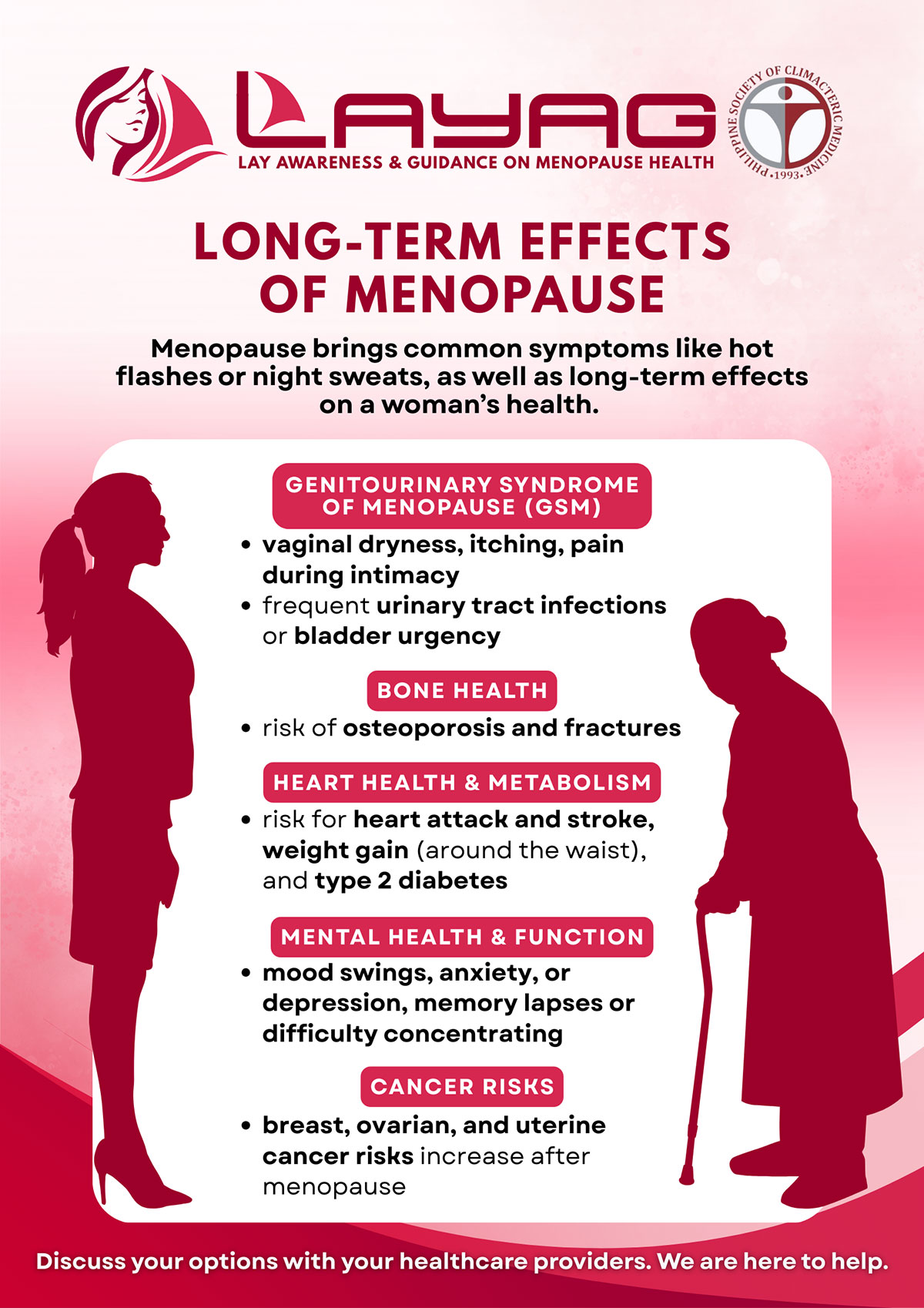Long-Term Effects of Menopause
Menopause is a natural stage of life that marks the end of monthly periods. While the transition itself brings common symptoms like hot flashes or night sweats, it also has long-term effects on a woman’s health. Knowing these risks helps you take steps to stay strong, active, and healthy.
Genitourinary Syndrome of Menopause (GSM)
Lower estrogen after menopause can affect the vagina, bladder, and urinary tract. You may notice vaginal dryness, itching, or pain with intimacy, and some women develop frequent urinary tract infections or bladder urgency. These symptoms are common, but treatments are available – such as moisturizers, lubricants, or local estrogen therapy.
Bone Health
Estrogen helps protect bones. After menopause, the decline in estrogen speeds up bone loss, raising the risk of osteoporosis and fractures. A balanced diet rich in calcium and vitamin D, weight-bearing exercise, and medical check-ups for bone health are key to prevention.
Heart Health and Metabolism
Menopause also impacts the heart, blood vessels, and metabolism. With lower estrogen, women are at higher risk for:
- Heart attack and stroke
- Weight gain, especially around the waist
- Type 2 diabetes
Healthy lifestyle choices – like eating well, staying active, quitting smoking, and regular blood pressure and cholesterol checks – can greatly lower these risks.
Mental Health and Function
Hormonal changes may affect the brain. Some women experience mood swings, anxiety, or depression, while others notice memory lapses or difficulty concentrating. Good sleep, physical activity, and mental exercises (like reading or puzzles) help. If mood changes feel overwhelming, professional support is important.
Cancer Risks
After menopause, the risk of certain cancers – such as breast, ovarian, and uterine cancer – changes with age, lifestyle, and family history. Regular screenings like mammograms and Pap smears remain essential for early detection and peace of mind.
Why This Matters
Menopause is not an illness – it’s a natural transition. But its long-term effects highlight the importance of preventive care, regular check-ups, and a healthy lifestyle. With knowledge and support, women can continue to live fulfilling, vibrant lives well beyond menopause.



